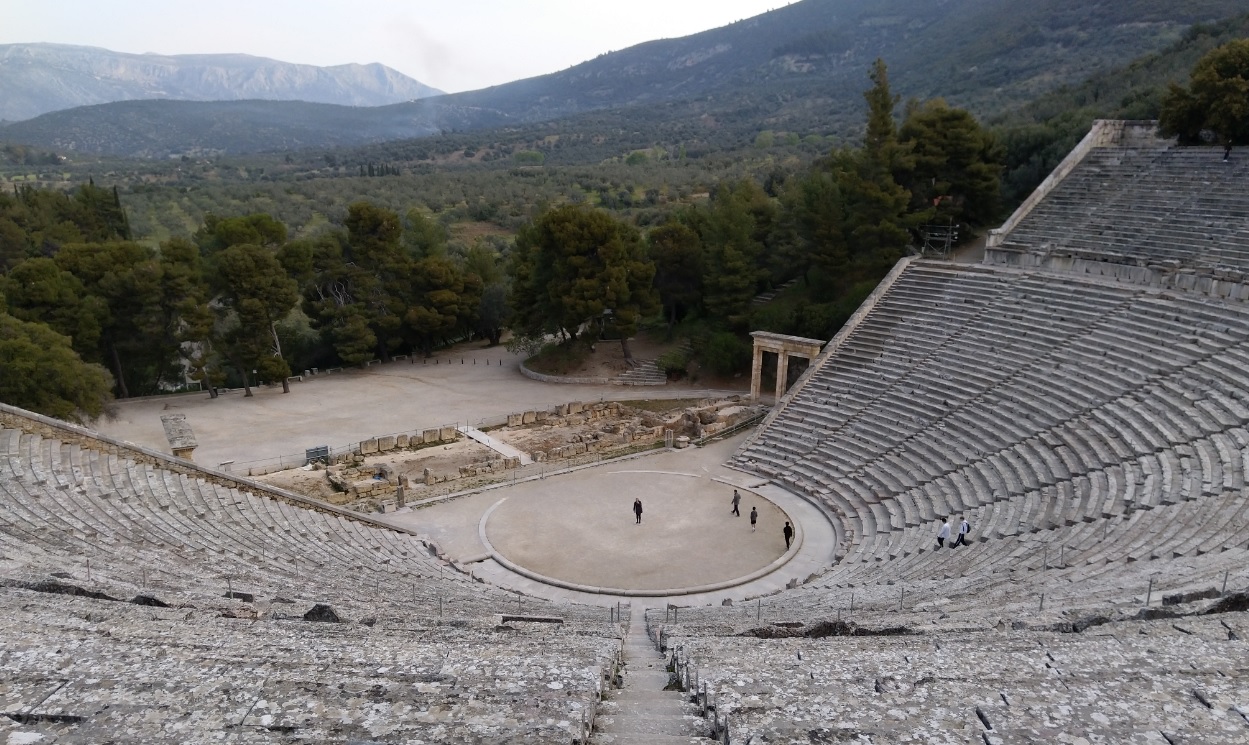Chairete! We thought we should start off with an explanation for what we’re trying to do, and for the significance of both festivals and networks in the Hellenistic and Roman Mediterranean.
Agonistic festivals – religious celebrations incorporating competitions of various kinds – were a major feature of socio-religious life among the Greeks from the Archaic period, which saw the creation of such famous contests as the Olympic and Pythian Games. Attracting competitors and spectators from across the Greek world, the largest of these festivals played a crucial role in the very definition of Greek identity.
Less well known, however, are the dramatic changes which affected festival culture in the Hellenistic era. Throughout the Greek world and Asia Minor in particular, old festivals were revived or re-organised, and new ones were founded in large numbers. The popularity and political importance of previously minor, local festivals increased dramatically, and more and more these festivals now operated on different scales at the same time: local, by consolidating the (new) citizenry of the polis; regional, by including surrounding cities in athletic competitions; and ‘global’, by forging links between cities across the extended Greek world. In the early centuries of Roman hegemony over the Mediterranean these trends were again amplified, while becoming bound up inextricably with the experience of Roman rule. The Connecting the Greeks project aims to shed new light on the development of a shared festival culture from the 3rd century BC, anchored in existing Greek traditions, and proposes that festivals were a driving force in the complex processes of connectivity that defined the place of cities, dynasts, leagues, kingdoms and eventually the Roman empire itself in the new Hellenistic world.
Given that one of the most important aspects of the Greek festival was this creation of connectivity, we have found it helpful to conceptualise “festival culture” as a network, with nodes – the festivals – tied together by a variety of mobile agents – athletes, spectators and sacred envoys. The network was the product of, and reflected, the social and political links between individuals and groups throughout the Mediterranean, but at the same time it formed a medium for interaction. We draw these insights from the loose school of thought known as “network theory”, but also intend to employ a more formal methodology: (Social) Network Analysis. This consists of the mathematical representation of networks, allowing us to examine the shape and density of interactions between festivals and to measure the influence and centrality of particular nodes. Naturally, this requires a comprehensive database of all information regarding the agents moving between festivals, which is currently under construction at (link). Ideally we will be able to trace developments over time in the broader festival network or portions of it, and to compare them with social, economic and political trends. We ask: how was the agonistic festival network shaped by the many transformations of the Greek world after Alexander’s death, and how did it in turn influence the thoughts and behaviours of those living in that world?
This website is intended firstly as a place for us to show off snippets of our ongoing research, as well as our thoughts on festival culture, network theory and SNA. Secondly, we wanted a way to let people know about new developments – conferences, workshops, publications – in our somewhat eclectic group of fields, so watch this space for news!
